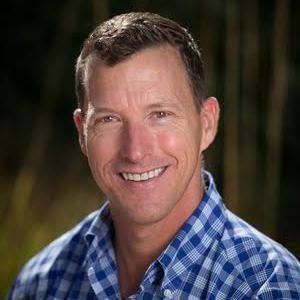
Global Change: How Students are Catalysts
During the last twelve years, the Center for Science, Technology, and Society, has worked with more than 300 social entrepreneurs through our Global Social Benefit Institute (GSBI®) platform. We offer mentorship and capacity development to change-makers and SCU undergraduates get a front row seat. The Global Social Benefit Fellowship (GSBF) provides undergraduate juniors within the GSBI worldwide alumni network of social entrepreneurs.
The GSBF provides practical opportunities for students to help social enterprises overcome challenges in delivering essential goods and services to underserved communities, such as safe drinking water, clean energy, sanitary pads, and livelihoods.
The GSBF combines a seven-week summer field experience in the developing world bracketed by two quarters of rigorous coursework. The GSBF provides practical opportunities for students to help social enterprises overcome challenges in delivering essential goods and services to underserved communities, such as safe drinking water, clean energy, sanitary pads, and livelihoods.
Fellows acquire a deep understanding of the challenges in eradicating poverty and mitigating climate change. The GSBF is open to students of every major. The action research teams are intentionally interdisciplinary, reflecting the complexity of solving real-world problems. We emphasize leadership development, personal growth, self-awareness, and vocational discernment.
This past summer, 15 students worked with six social enterprises in five countries: Mexico, the Philippines, India, Indonesia, and Uganda.
They, along with other Fellows, are exemplars of the Santa Clara University experience: future leaders who will fashion a more just, humane, and sustainable world.
Our class of Fellows returned in August and recently delivered their action research project results to the CEOs and executive directors of the social enterprises. Below are a few reflections from two Fellows. They, along with other Fellows, are exemplars of the Santa Clara University experience: future leaders who will fashion a more just, humane, and sustainable world.
Caroline De Bie (Public Health Sciences, ‘15) worked with the social enterprise BanaPads, which produces sanitary pads from natural, readily available banana stems. The company creates a network of women entrepreneurs, who distribute the pads in their communities.
During her time in Uganda, Caroline met a young mother, Grace, who was trying to pay school fees for her children. She was hired by BanaPads in 2010 and has since opened her own store. Read more about Grace’s story and other experiences in Caroline’s blog.
Alex Cabral (Economics and Environmental Science, ‘15) spent her fellowship working in Mexico with Illumexico, which sells solar electric systems to rural communities. After her return to her “normal” life, she commented on the differences between her own community and the communities she encountered conducting her research.
“Although the communities had similar characteristics (rural, low-income, houses made of wooden planks with woven palm-leaf or tin-planks roofs), each place was unique. Some communities were fairly spread out, with houses sprinkled throughout an open field. Some were buried in the hills, so that it took a 25-minute walk just to get to the front porch. People had talking parrots, motor scooters, hammocks, stereos, a random combination of everything. As I walked through each village, I tried to picture what my life would have been like if I had grown up in those areas. It was difficult. I had never been in that environment before, nor did I know many people who had.
The lifestyles of those reading this blog cannot compare to those of the rural residents of Campeche or Oaxaca. Imagine your grandmother trekking up a rocky mountain for an hour, with bags full of groceries, only to arrive home and begin cooking dinner for a family of six. Imagine chopping reeds with a machete in the backyard for 5 hours in 100-degree weather and stifling humidity so that your family can keep warm when the temperature drops at night. Imagine life without the convenience of running water, electricity, large-scale grocery stores, food diversity, a cold beer on a hot day, ice cubes.
The lifestyles of those reading this blog cannot compare to those of the rural residents of Campeche or Oaxaca. Imagine your grandmother trekking up a rocky mountain for an hour, with bags full of groceries, only to arrive home and begin cooking dinner for a family of six. Imagine chopping reeds with a machete in the backyard for 5 hours in 100-degree weather and stifling humidity so that your family can keep warm when the temperature drops at night. Imagine life without the convenience of running water, electricity, large-scale grocery stores, food diversity, a cold beer on a hot day, ice cubes.
To read more of Alex’s reflections, click here.
Dec 8, 2014

